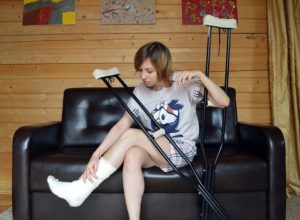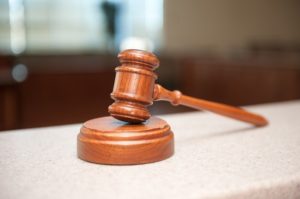Re-opening Your Claim
By Dennis R. Kurth, Associate Attorney
Certified Workers’ Compensation Specialist
 One of the best features of the Arizona Workers’ Compensation law for claimants is the right to reopen a closed case for active medical treatment and temporary compensation anytime during the injured worker’s lifetime. The statute requires that, in order to reopen a case, the claimant must prove that he/she has some new, additional, or previously undiscovered condition and some objective, positive findings on clinical examination or imaging studies that are related to the original injury and were not present when the case was closed.
One of the best features of the Arizona Workers’ Compensation law for claimants is the right to reopen a closed case for active medical treatment and temporary compensation anytime during the injured worker’s lifetime. The statute requires that, in order to reopen a case, the claimant must prove that he/she has some new, additional, or previously undiscovered condition and some objective, positive findings on clinical examination or imaging studies that are related to the original injury and were not present when the case was closed.The ability to reopen an old case is very important to the injured worker whose knee has deteriorated over time and has developed severe arthritis since an industrial meniscectomy or whose back or neck has developed arthritis (‘adjacent level disease”) above or below the level of a fusion surgery. In these examples, there is usually a chain of causation from the original injury and surgery to the subsequent degenerative condition. Such connection must, of course, be established by competent medical evidence.
Once these cases are reopened the claimant is able to have treatment, including surgery, completely paid by the workers’ compensation carrier and can again receive temporary and later, permanent, compensation indemnity benefits paid for any attending disability. It goes without saying, of course, that carriers usually resist reopenings and put claimants to their full burden of proof.
While generally, one might think that a subsequent and independent traumatic injury to somebody part previously injured on the job and treated surgically might not sustain reopening of the worker’s compensation case, that is not always the case and workers’ compensation practitioners would do well to acquaint themselves with the law in that regard.
reopening of the worker’s compensation case, that is not always the case and workers’ compensation practitioners would do well to acquaint themselves with the law in that regard.
 reopening of the worker’s compensation case, that is not always the case and workers’ compensation practitioners would do well to acquaint themselves with the law in that regard.
reopening of the worker’s compensation case, that is not always the case and workers’ compensation practitioners would do well to acquaint themselves with the law in that regard.In a seminal case[1]from many years ago an injured worker tore a meniscus in his knee and underwent a meniscectomy. Several months later, while playing frisbee with his friends, the claimant tore his anterior cruciate ligament and needed surgical reconstruction. The carrier denied liability for the torn ligament and surgery.
The claimant’s doctor testified that, while playing frisbee caused the torn ACL, it would not have occurred had the knee not been weakened by the meniscectomy. He also, along with the claimant’s physical therapist and frisbee teammates, testified that it was not unreasonable for the claimant to have been playing frisbee despite the prior surgery.
According to the Arizona Court of Appeals, the claimant had established a right to have the ACL reconstruction surgery covered under the industrial claim even though the industrial injury did not cause the ACL tear as long as it was established that the weakness of the knee from surgery made it more susceptible to further injury and the claimant’s subsequent activity was reasonable, i.e., not something that his doctor told him not to do.
 The Klosterman case, though not technically a reopening case, is more commonly applicable in reopening situations where there might be a long interval between the industrial injury and surgery and the subsequent injury. In the context of a prior industrial back surgery, for example, a conscientious practitioner would do well to inquire whether a new, traumatically-induced herniated disc above or below the surgical level, ostensibly due to say, bending over to pick up a folding chair, for example, might have been partially caused by a weakness of the spine due to removal of some part of the vertebrae in the prior laminectomy. If so, reopening of the workers’ compensation case might be indicated and a petition to reopen should be filed.
The Klosterman case, though not technically a reopening case, is more commonly applicable in reopening situations where there might be a long interval between the industrial injury and surgery and the subsequent injury. In the context of a prior industrial back surgery, for example, a conscientious practitioner would do well to inquire whether a new, traumatically-induced herniated disc above or below the surgical level, ostensibly due to say, bending over to pick up a folding chair, for example, might have been partially caused by a weakness of the spine due to removal of some part of the vertebrae in the prior laminectomy. If so, reopening of the workers’ compensation case might be indicated and a petition to reopen should be filed.In these subsequent injury situations, it is important to realize that an intervening, traumatic injury off work does not always break the chain of causation from the original injury and, in situations like those described above, some contact with the attending surgeon to investigate the matter is called for.
